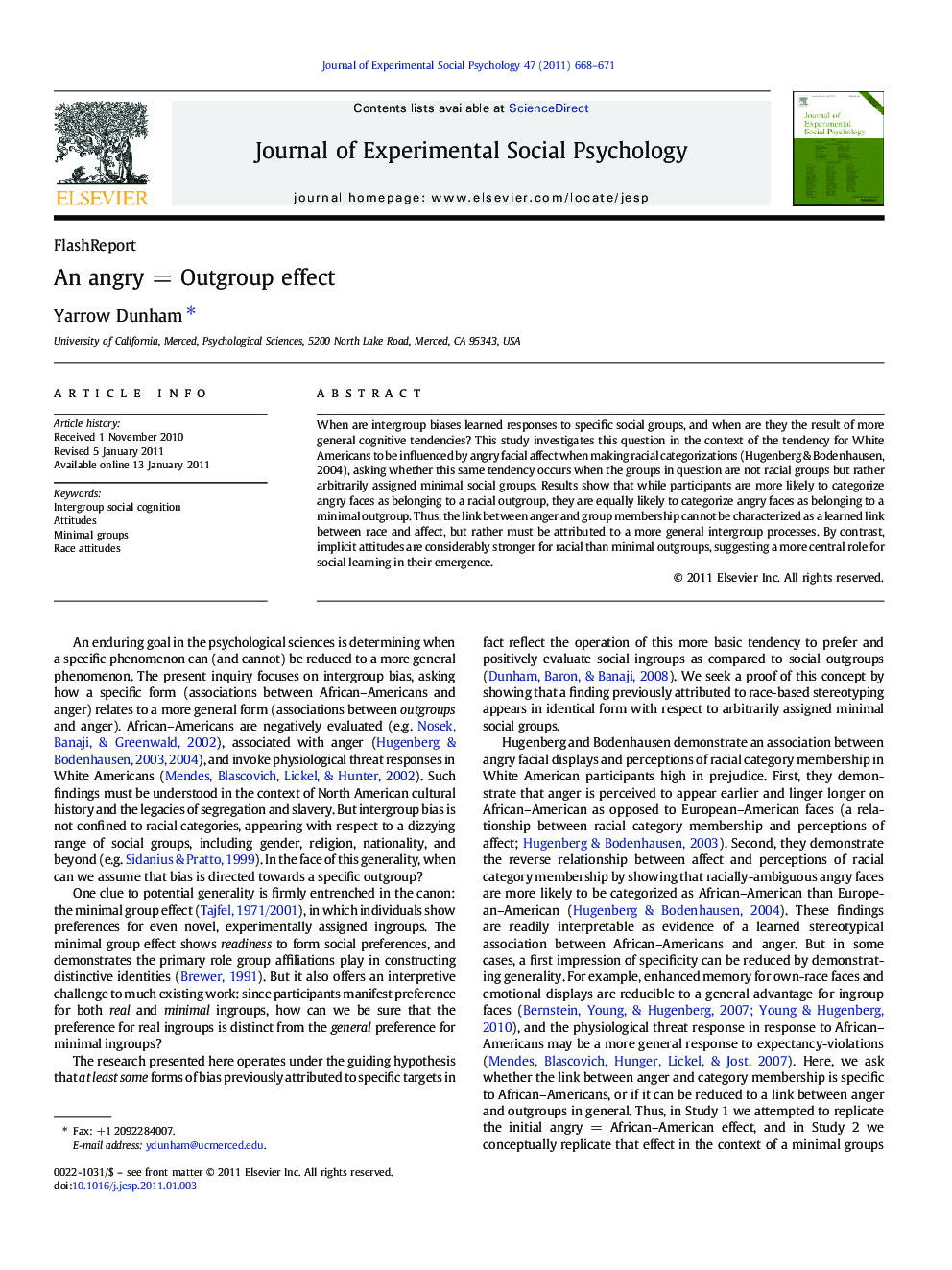| Article ID | Journal | Published Year | Pages | File Type |
|---|---|---|---|---|
| 948382 | Journal of Experimental Social Psychology | 2011 | 4 Pages |
When are intergroup biases learned responses to specific social groups, and when are they the result of more general cognitive tendencies? This study investigates this question in the context of the tendency for White Americans to be influenced by angry facial affect when making racial categorizations (Hugenberg & Bodenhausen, 2004), asking whether this same tendency occurs when the groups in question are not racial groups but rather arbitrarily assigned minimal social groups. Results show that while participants are more likely to categorize angry faces as belonging to a racial outgroup, they are equally likely to categorize angry faces as belonging to a minimal outgroup. Thus, the link between anger and group membership cannot be characterized as a learned link between race and affect, but rather must be attributed to a more general intergroup processes. By contrast, implicit attitudes are considerably stronger for racial than minimal outgroups, suggesting a more central role for social learning in their emergence.
